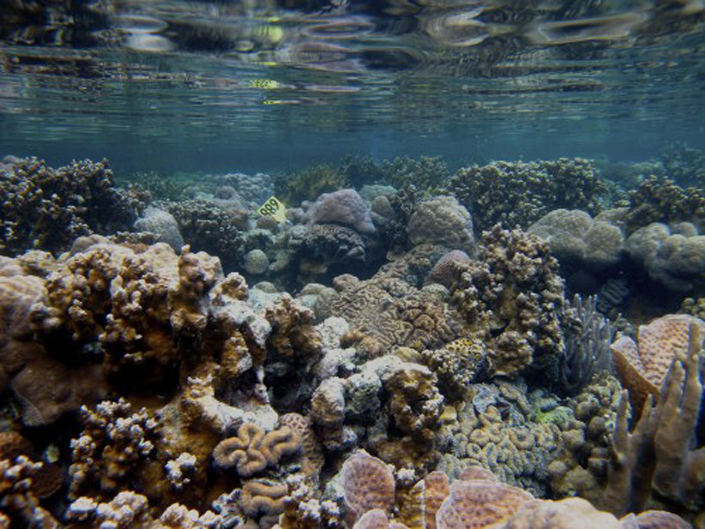Why do these coral reefs thrive in acidic waters that should harm them?

Image: Woods Hole Oceanographic Institution
Defying all odds, a large reef near a small Micronesian nation is thriving despite high levels of acidification, an international research team says in a newly published article.
The team – which includes Kathryn Shamberger, an assistant professor of oceanography in Texas A&M University’s College of Geosciences – published its findings in the current issue of Science Advances.
The team examined eight coral reefs in the Palauan archipelago and found high levels of acidification within the lagoons and inlets of the Palau Rock Islands. Yet, the team found, the Rock Island coral reefs appear to be extremely healthy.
Shamberger said, “The reefs appear healthy, but they have high levels of bioerosion, which occurs when organisms like mollusks and worms bore into the reef and break it down.”
Acidification in Palau is due to a combination of biological activity and the slow flushing of water through the Rock Island lagoons. This allows acidification levels to build over time.
The National Science Foundation funded the project with The Dalio Foundation Inc., The Tiffany & Co. Foundation, The Nature Conservancy and the WHOI Access to the Sea Fund.

